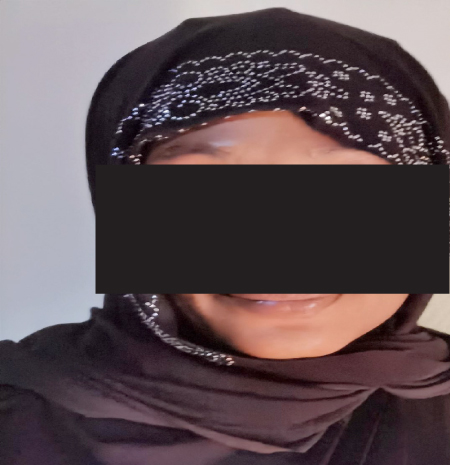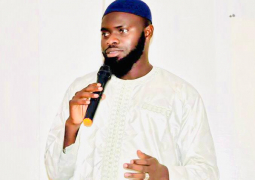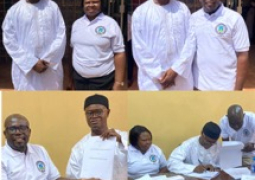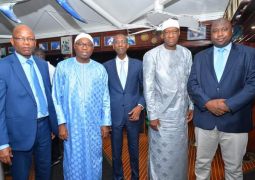
She is now 41. Fatima (not her real name) was a married, middle-aged woman with two sons at the time. A dedicated political activist to the cause of her party in the fight to end dictatorship in The Gambia. After narrating her arrest, detention and rape to her husband, she got divorced and blamed for what she endured at the hands of law enforcement.
Her younger son, then only five, died from asthma. She continues to be steadfast as a single parent. To her, the Truth, Reconciliation and Reparation Commission’s search for truth and forging reconciliation would not be complete until perpetrators of such crimes in national uniforms are purged from service and brought to justice.
“The worst feeling is that I continue to suffer psychological trauma from this experience. I am still under medical treatment for spinal problems due to baton beatings, kicking from hard boots and falling over and over while they beat me up like a thing or an animal and I was seeking to run away for safety,” she narrated when our reporter visited her house over the weekend.
How it happened
In 2016, Solo Sandeng led a group of political activists to March for electoral reforms in The Gambia. They were met with brutal force. Arrested, beaten, resulting in his death. Two days later, his party leader also led a peaceful march demanding Solo’s body, dead or alive.
Again, they were met with force. A lot of the top party executive members, comprising many old aged politicians, got arrested, beaten, injured and charged with various crimes.
On this fateful day, Fatima was among the protestors, demanding Solo’s body from NIA custody. After a clash around the Africell-Comium vicinity along Kairaba Avenue, she too got arrested and put into the back of a pick-up car with other women.
“Our party leader gave instructions for all to stay behind him and the executive members, so that when shots are fired, he would be the first victim. We marched on and chanted our demands when a truck full of armed Police Intervention Personnel came upon us. They fired tear gas at us from all corners, while others randomly beat us with batons and gun butts. I fled but I was caught,” she narrated.
On this day, she got lucky and was able to jump out and run for cover while others were rounded up and the vehicle was left unguarded.
“What shocked me even more was seeing Baa Ousainou being gun-butted on his head, blood dripping down his body…My heart melted with anger at the same time; my desire for fighting to the end had raised even more. His peers like Dibba, Jammeh, Peters and other youths like Hon Lamin S Darboe, all suffered the same fate. It was The Gambia that made us risk it all,” she said, as her voice trembled.
Fatima seemed broken but she is certainly not the giving up type as she explained her story, seated on the sofa in her living room just before the break of fast.
“How did you get raped?”
Fatima never granted an interview to speak about this. It’s a taboo in The Gambian culture to discuss sex openly, talk less of your rape experiences. She took comfort in knowing that it would be an end to an ear of oppression, dictatorship and abuse.
“What’s at stake was not the freedom of our leaders alone. It was the death of our struggle for freedom from Jammeh; the triumph of our party over dictatorship. It took us twenty years to reach there,” she recalled with a dint of pride in her face as she smiled.
When Ousainou Darboe and UDP executive members were charged by the state for that peaceful march as a crime, it was under a law enacted by the colonial British government in the 1940s that became even strengthened by former dictator Jammeh.
In the Second Republic in The Gambia, the government had the same objectives: crush dissent, impose order on the masses and throw outspoken opponents in prison. Jammeh turned out to be worse than the colonialists in this case.
The ensuing trials gave birth to a new revolution organised, headed and driven by women. This was the Kalama (calabash) revolution. Fatima, again, goes to court, each sitting to show solidarity with their leaders. Security was usually tight at the courts and around Banjul. Yet, they were undeterred; their solidarity with their leaders was needed. Another clash would occur.
On another of those trial days, there was a clash with PIU guards at the Court premises: “They were deterring us from entering the premises. They had put up metal bars to keep us at bay. When one of our old-aged supporters got his leg broken after he was pushed by a PIU guard, reactions were tense. Fighting nearly ensued between us and the guards. A female PIU officer also broke her leg in the clash,” she narrated.
This gave rise to another ambush against the women as she alleged that PIU guards laid in wait at the Kanifing barracks when news of the clash reached them. They were armed in riot gears waiting for the women as they marched from Banjul to Westfield on foot.
“Before we knew, troops were dispatched against us and we were being beaten with batons, gun butts and kicked with boots. We ran for safety and I fell. I cried for help as we received multiple baton beatings all around our bodies,” she recalled, adding that she got arrested this time and taken into custody.
“At night, they came and took four of us away… one after the other. They wore ski-masks and we did not know their identities. We never saw their faces except commands and threats to subdue me into submission. I fought and screamed with all my energy. I was helpless and cried but tears would not save me. I just laid there and looked at the ceiling….”




